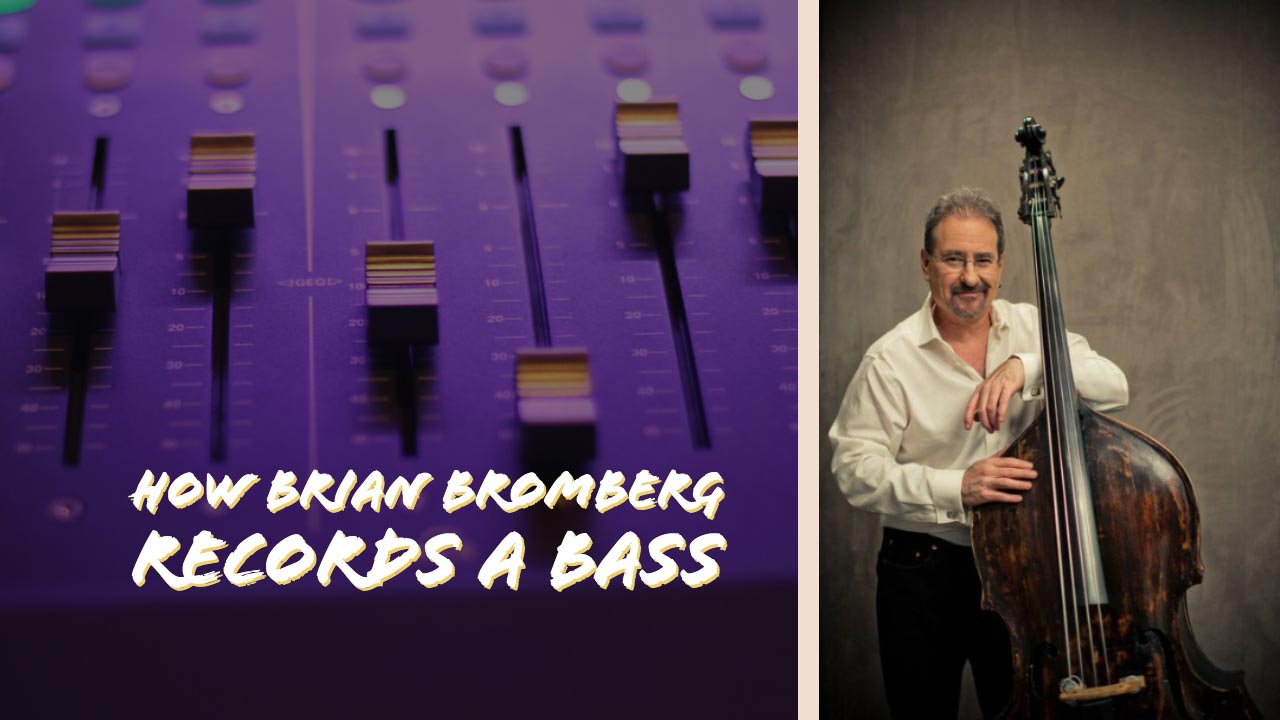This excerpt comes from an interview with Brian Bromberg for Contrabass Conversations. Enjoy, and you can check out the complete interview here.
Brian: In the process of my career, I grew into a producer, and I’ve been producing for many many many years.
Producers don’t think like bass players.
Producers don’t think like instrumentalists.
When you’re—when you’re a bass player or a sax player, guitar player–doesn’t matter what you do—you focus on your role, your job, and you’re very myopic, especially in jazz.
I know a lot of guys, they don’t care what their record sounds like. It could be the worst sonic recording in the world.
There could be buzz, there could be noise—they don’t care.
“man, did you check it out? I made that chord change.”
You know, all they care about is they’re playing over changes.
That’s it.
They’re, you know, they’re so “listen how great I sound.
It’s like, “yeah but your record sounds terrible. They don’t think like producers.
They think like their world.
So over years of just learning how to produce and working with great people.
I’ve been fortunate you know to work with people like David Foster and Quincy Jones and people like that.
You know, when you work with people that, this is what they do.
You learn how to hear things and do things differently.
If you really listen to my records, my bass parts ninety-nine percent of the time are pretty simple.
It’s just there’s nothing–you know, I played bass for the music you know, and then when I do my solos I might do some crazy stuff, but I truly try to play for the music, because it’s the music first.
You know, you’re a person first, musician second, bass player third.
That has to be the order because—these are all gorgeous instruments–but what makes them make music: it’s the person.
You know, I mean my bass would be a nice piece of firewood, but it’s the human that makes the music on it [but], and it’s what comes out of your instrument.
It’s the humanity of what comes out of your instrument is what sings.
That’s why you know 50 different sax players can play the exactly the same thing but nobody sounds like John Coltrane or nobody sounds like, you know, Cannonball Adderley.
Everybody has their sound. Nobody sounds like Jaco.
You know, it’s the humanity.
A million people have a Fender bass. Do they sound like Jaco? No.
He could… he could pick up a suitcase and make it sound great.
I’ve seen him play all my basses. It sounded like Jaco. Didn’t sound like me.
So anyway, you learn how to produce. When you learn how to produce, you do what’s right for the music and what’s right for the music is the mix: knowing what to do where and why.
So I spend a lot of time on my records making sure that you know again in production it’s the big picture.
It’s not this: it’s everything.
So I make sure on my records that my records sound good.
Because I want the whole experience of the music to be great. Not just, you know, the bass playing or the sax or whatever so you hear.
You hear the bass because it’s right in the mix and if you listen to it on an iPod or you listen to it on a laptop speaker or you listen to it on a huge system you can hear the bass.
You know, I tell you, if you put the music on your cell phone and you put it on the table and you stand ten feet away and listen to it, how many how many records can you do that and hear the bass?
The challenge is to be able to hear the bass on your phone on a table and put it on a rig and have the bass not be too loud. That’s the challenge because you’re dealing—again—you’re dealing with an instrument that’s putting out frequencies that a speaker the size of an eraser isn’t gonna put out.
I’m sorry, an iPhone speaker’s not going to put out 30 cycles of a B string, you know, so there’s a challenge in trying to mix your records so you hear the bass and it’s got identity but it’s not overwhelming the music.
That’s not easy to do, and that’s something that I pride myself on with my records–that you hear everything.
Bass News Right To Your Inbox!
Subscribe to get our weekly newsletter covering the double bass world.

